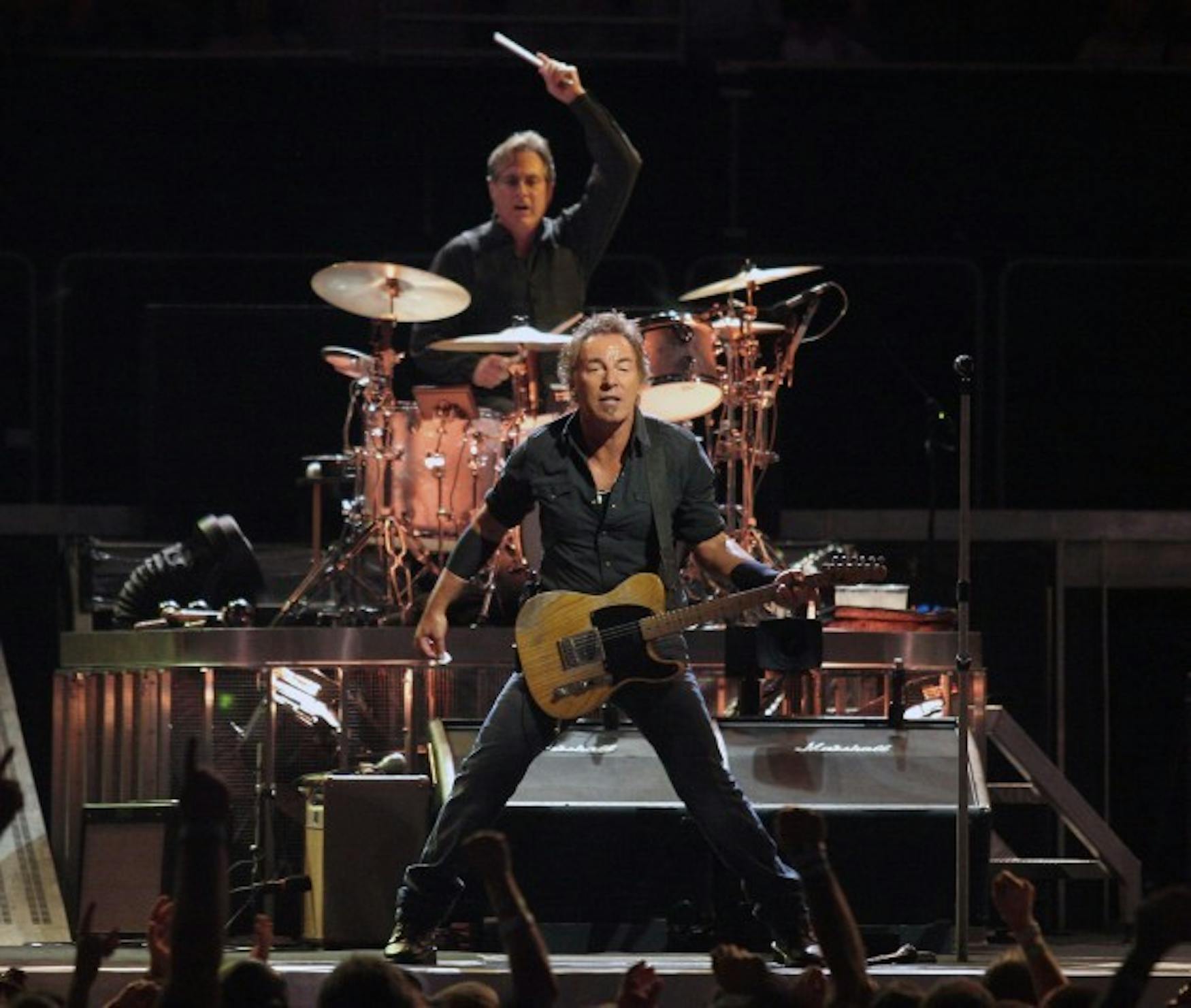Springsteen proves musical longevity
It can often be disappointing when a beloved popular artist releases a new album. Fans will build up their hopes for a specific sound, and often times, those hopes are not met. Thankfully, Bruce Springsteen's newest work, High Hopes, is by and large an exception. Perhaps this is because it comes less than two years on the heels of his successful Wrecking Ball. Or maybe it's due to the fact that most of the songs on High Hopes are either re-imagined classics, never-before-recorded songs or covers. Although it does have its flaws, High Hopes is a nice blast to Springsteen at his finest.
Like Wrecking Ball, Born in the USA and Ghost of Tom Joad, High Hopes revolves around the themes of anger, politics and social justice. Even if the songs are covers or re-recorded takes of older Springsteen songs, they still resonate with current events. That becomes especially clear in the third song on the album. "American Skin (41 Shots)" was originally written in honor of Amadou Diallo, an unarmed black man who was shot to death by the New York Police Department in 1999. With themes of injustice, race and failings of the legal system, there is something reminiscent of Oscar Grant and Trayvon Martin in the song. This was especially clear in the refrain of "You can get killed just for living in/ you can get killed just for living in your American skin," that race can be a death sentence for many young black men.
The same thing can be said of "The Wall." Springsteen originally wrote the song after a trip to the Vietnam Memorial and in honor of musicians who died in Vietnam. However, despite its age, "The Wall" still rings true to contemporary listeners. We are still in a war that many Americans are unhappy with, and has had a very high cost of life, much like the situation in Vietnam. That is Springsteen's strength: writing timeless ballads. It doesn't matter what decade it is. His music still is relatable to what is going on in the world.
However, not all the older songs work or mesh well. As a whole, the album feels fragmented and disjointed at times, going from fast to slow in tempo with very little warning. "High Hopes," the titular song, may be a Springsteen mainstay from the '90s, but it falls flat in this album. The riffs last just a bit too long, and the lyrics do not have Springsteen's usual cynicism and bitterness.
"Just Like Fire Would," a cover by Springsteen of a song by the Australian punk band The Saints, was also disappointing. There's nothing wrong with "Just Like A Fire Would" per say; it even has a Springsteen sort of vibe to it. All the same, the song, in comparison to some of the other pieces on the albums, is missing the intensity that I was expecting.
Two songs in particular really stood out to me. "Harry's Place" is one of the few newer songs on the album, originally written in 2001 but cut from earlier albums. From the get-go, it's seductive, with a slow beat and Springsteen's low, rumbling voice. Unlike many of the other songs on the album, "Harry's Place" alludes to more modern themes than other songs, with references to hipsters and sexuality. However, like other Springsteen songs, the general feel is strictly blue collar and working class.
"The Ghost of Tom Joad" has always been one of my favorite Springsteen songs, and the rendition on High Hopes certainly does not disappoint. For one thing, this version is over seven minutes long, and every second is worth it. It is not fully identical to the original "Ghost of Tom Joad" but rather an update for a new decade and a new generation. However, even with a new guitar riff, "Ghost of Tom Joad" still took me back to an early Springsteen.
High Hopes is not a perfect album. It can be disjointed at times and some of the song cuts are simply too long. If one is expecting a return to Darkness on the Edge of Town or Born To Run, they are going to be disappointed. Springsteen is older, and at times, his songs can feel dated. High Hopes may not match up to his greatest works, but it breathes a new life into a great artist and shows that Bruce Springsteen isn't going to be done recording for a long time.
*




Please note All comments are eligible for publication in The Justice.